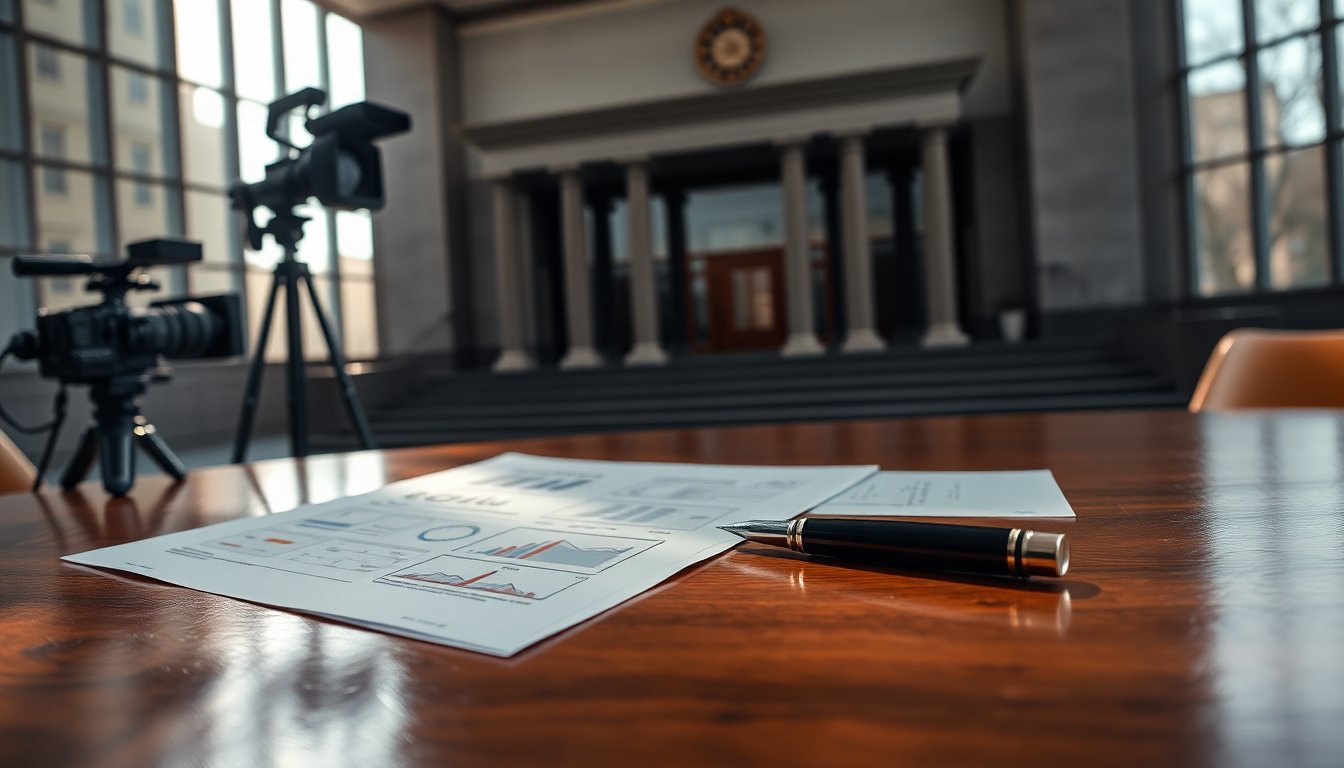Table of Contents
In a significant escalation of tensions between former President Donald Trump and media outlets, Trump has announced plans to sue the British Broadcasting Corporation (BBC). The dispute centers on an edited version of his speech delivered on January 6, 2025, which was featured in the BBC’s Panorama documentary series. This edit has led to allegations of misrepresentation, prompting Trump to threaten legal action and seek damages estimated between $1 billion and $5 billion.
Background of the controversy
Donald Trump’s announcement emerged during a flight on Air Force One, where he expressed dissatisfaction with the BBC’s portrayal of his remarks. He described the edits as false and misleading, arguing that they misrepresent the essence of his speech. In his original address, Trump called on his supporters to protest peacefully; however, the documentary allegedly omitted this crucial detail, potentially creating a narrative that implies a call for violence.
BBC’s response and accountability
Following Trump’s criticisms, the BBC publicly acknowledged the editing errors. Samir Shah, the chair of the BBC, offered an apology for the oversight. The organization clarified that the edit gave a misleading impression that Trump was advocating for violent actions. Despite this apology, the BBC maintains that there is no basis for a defamation claim, asserting that their intentions were not to mislead the public.
The BBC has encountered considerable backlash regarding its coverage of Trump’s speech, resulting in the resignations of several key executives, including the Director-General and the head of news. This incident highlights the importance of journalistic integrity and accountability, especially during the coverage of sensitive political events.
Legal challenges facing Trump
Media law experts indicate that Trump’s proposed lawsuit is likely to face significant legal hurdles. Mark Stephens, a prominent media attorney, stated that the foundation of Trump’s defamation claim appears weak and may not survive judicial review. He noted that the BBC’s documentary primarily airs in the UK, complicating Trump’s ability to file suit under U.S. laws.
Jurisdictional issues and potential outcomes
A significant challenge for Trump is establishing jurisdiction in Florida, where he plans to file his lawsuit. Legal experts, including Stephens, have noted that the BBC iPlayer, the streaming platform of the BBC, is geo-restricted. This means it is not easily accessible in the United States without a VPN. This geo-restriction raises critical questions about whether the documentary can be considered published in the U.S., a key factor in any defamation case.
Moreover, under U.S. defamation law, Trump, as a public figure, must demonstrate that the BBC acted with actual malice. This standard is rigorous, requiring proof that the BBC knowingly published false information or acted with reckless disregard for the truth. Given these demanding requirements, Trump’s legal team may face challenges in constructing a persuasive case.
The broader implications of the lawsuit
This lawsuit could mark a significant moment in the ongoing debate about press freedom and accountability. If Donald Trump’s case proceeds, it may establish a precedent for public figures seeking to challenge foreign media in U.S. courts. The outcome could influence how journalists report on political figures amid a landscape characterized by heightened scrutiny and polarized views.
While Trump seeks to hold the BBC accountable for what he views as defamation, the implications of this lawsuit could extend far beyond this specific situation. The intersection of media, politics, and law presents numerous complexities, and this case is likely to underscore those challenges in a highly visible way.


